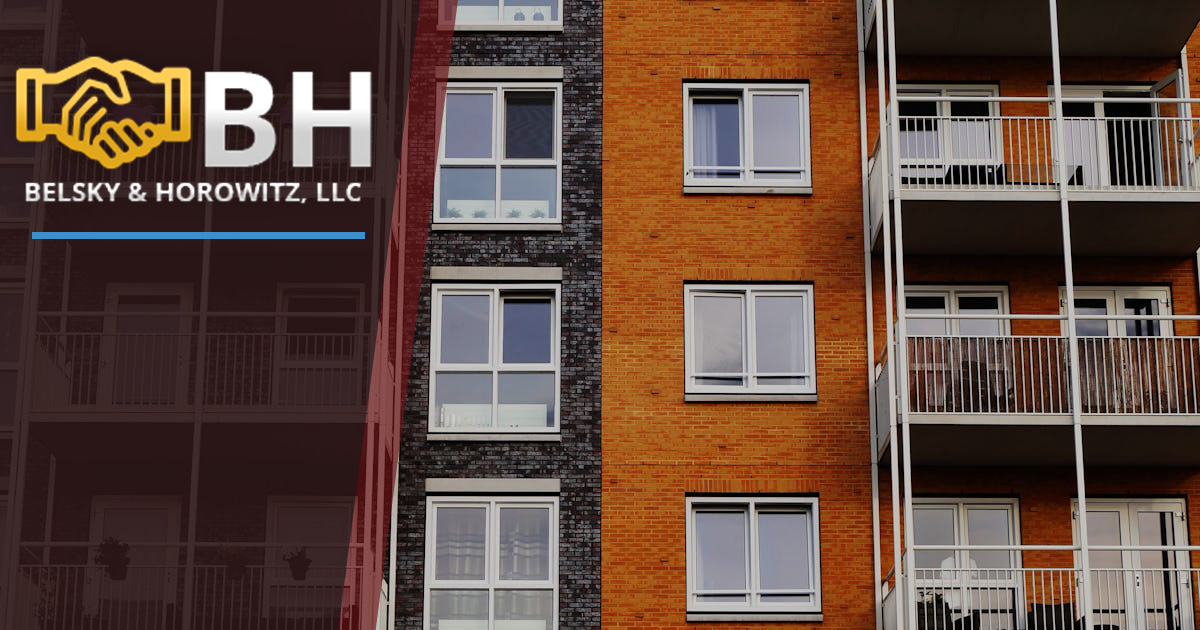How To Sue an Apartment Complex for Negligent Security

United States Census Bureau data shows that 31.8% of Maryland residents are renters. There are many benefits to renting an apartment, such as having a fixed monthly rent with no property taxes and having property repairs handled by the landlord or property management company.
What you may not realize, though, is that among their many responsibilities, your landlord also has a “duty of care” to keep you, your fellow residents, and invited guests reasonably safe. If a criminal incident causes you to suffer serious injuries or property loss, can you hold that landlord liable? Technically, you can, but proving such cases can be quite challenging. Continue reading, where we’ll discuss how to sue an apartment complex for negligent security if you opt to pursue this option.
The Complexity of Proving Security Was Negligent
As with any personal injury claim, the burden of proof is on the plaintiff (the person filing the suit) to establish negligent security. You can name the landlord, property owner, or property management company (or combination thereof) as the defendants in a negligent security lawsuit.
Establishing that negligence played a role in causing the end result (i.e., you becoming a crime victim, which caused you to suffer serious injuries or a loved one to die) begins with you needing to show that the defendant had a responsibility (duty) to their tenants a to provide adequate security.
The following are some reasonable examples of security measures apartment complexes must consider implementing:
Ensuring Locks Function
All access points to the apartment complex should have functioning locks. That means locks on the main door, outdoor gates, garages, service entry and individual rental units. Depending on the complex, you might also have locked and gated parking lots.
Installing Proper Lighting
Appropriate and adequate lighting should be provided in all common areas of the apartment complex, including the hallways, laundry rooms, and parking areas.
Monitoring Their Premises With Video Cameras
Video surveillance is an added feature for an apartment complex that surveys the common areas, entry points, and parking lots. Any video surveillance system must be properly maintained and functioning.
Hiring Security Staff
Some apartment complexes have security personnel stationed at the main entry. They screen any visitor or delivery person to verify that they belong in the building. Depending on the size of the complex, additional security staff could circulate the property, monitoring it more closely.
Remember that if you move into a complex without the above-referenced and other security features in place, you are assuming a certain level of risk. However, if the apartment complex has those measures in place, it is because the property owner understands the issue of a crime’s foreseeability.
Elements You Must Be Able To File a Claim or Lawsuit Against Your Landlord
There are a few key elements that injury victims must prove to be able to sue another party for any damages they sustained, including:
A Duty of Care Was Owed and Breached
Our state’s legislature has detailed many aspects of tenant law, which the Maryland Thurgood Marshall State Law Library has compiled. However, there are no specific responsibilities for a property owner to provide security measures for their tenants. That being said, landlords do, in general, have a responsibility (known as a duty of care) to ensure their premises are safe for most who rent from them as well as those who visit their property.
While many owners implement security measures to increase interest in their rentals over others in the area, many of the ones taken occur in response to some level of foreseeability, which refers to the likelihood that a crime could be committed on the property.
For instance, a tenant could move into an apartment complex and have items stolen from their car. After reporting the issue to the property manager, brighter lights and video cameras may be installed. That can deter foreseeable crimes. Of course, if the property manager does not provide those security measures after being alerted to crimes, that could be considered a breach of their duty of care.
Causation
When a breach of duty of care and foreseeability has been established, you must prove causation. This entails you showing that neglect is responsible for the injuries you suffered.
Suppose your apartment building is supposed to have a security lock on the front door that can only be opened when a tenant “buzzes” in a visitor. If that lock is broken, and someone gets into the building and commits a crime that harms you, for example, you could make the case for causation. In other words, if not for the broken lock, the criminal might not have gotten into the building.
Damages
Finally, after lining up all those elements, you must prove your damages. You could sue for property damage or theft that isn’t covered by a renter’s insurance policy. If the crime resulted in personal injury, you could add damages related to medical expenses, lost wages, and pain and suffering.
Building a Strong Case Against a Baltimore Apartment Complex If You’re Hurt
As mentioned, filing a negligent security lawsuit against a property owner can be challenging, especially when it comes to proving a landlord had a duty of care, showing how they violated it, and connecting your injuries to their actions (or inactions). That is why you want an attorney with experience handling negligent security lawsuits to represent you.
At Belsky & Horowitz, LLC, we understand how to determine the merits of a case and what evidence is needed to build toward a successful outcome. Call to schedule a free consultation to discuss what happened at your apartment complex and what your rights are.





